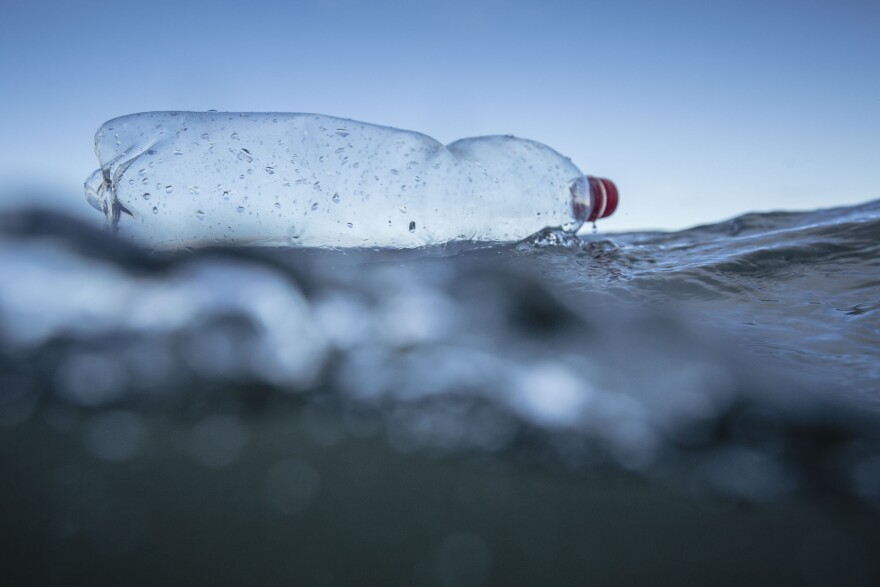Japanese scientists announced this past week that they had not only discovered bacteria that naturally digest the PET plastic used to make many water bottles, they had also genetically modified them to make them better at breaking down plastic. Headlines made it seem like our plastic pollution woes were over.
The world produces more than 40 million metric tons of PET plastic every year and, here in the U.S., less than a third of that gets recycled. At the same time, the amount of plastic floating around in the ocean is growing.
But Ramani Narayan, a university distinguished professor in chemical engineering and materials science at Michigan State University, says that touting plastic-eating bacteria as the solution misses the point.
“It is implied that the technology to break down this PET plastic and similar plastics, is the bottleneck in managing PET waste. And that this new enzyme is the breakthrough we have been waiting for,” Narayan said.
That’s just not the case, according to Narayan. There are plenty of cheaper and easier ways to break down and recycle PET; in fact, it’s one of the easier types of plastic to break down. So, industrial scale production of enzymes or genetically-modified bacteria isn’t necessary.
Ocean advocacy groups, such as the Ocean Conservancy, raised the same point.
Narayan also dismisses the idea of adding either the original bacteria or the genetically enhanced version to ocean environments to speed the degradation of plastic debris. He calls it irresponsible, and says there would be too many side effects for the ecosystem.
The true challenge, Narayan says, is making sure that plastic waste doesn’t escape into the environment in the first place. And that, he argues, means improving waste processing infrastructure – not nearly as exciting as plastic-eating bacteria.




